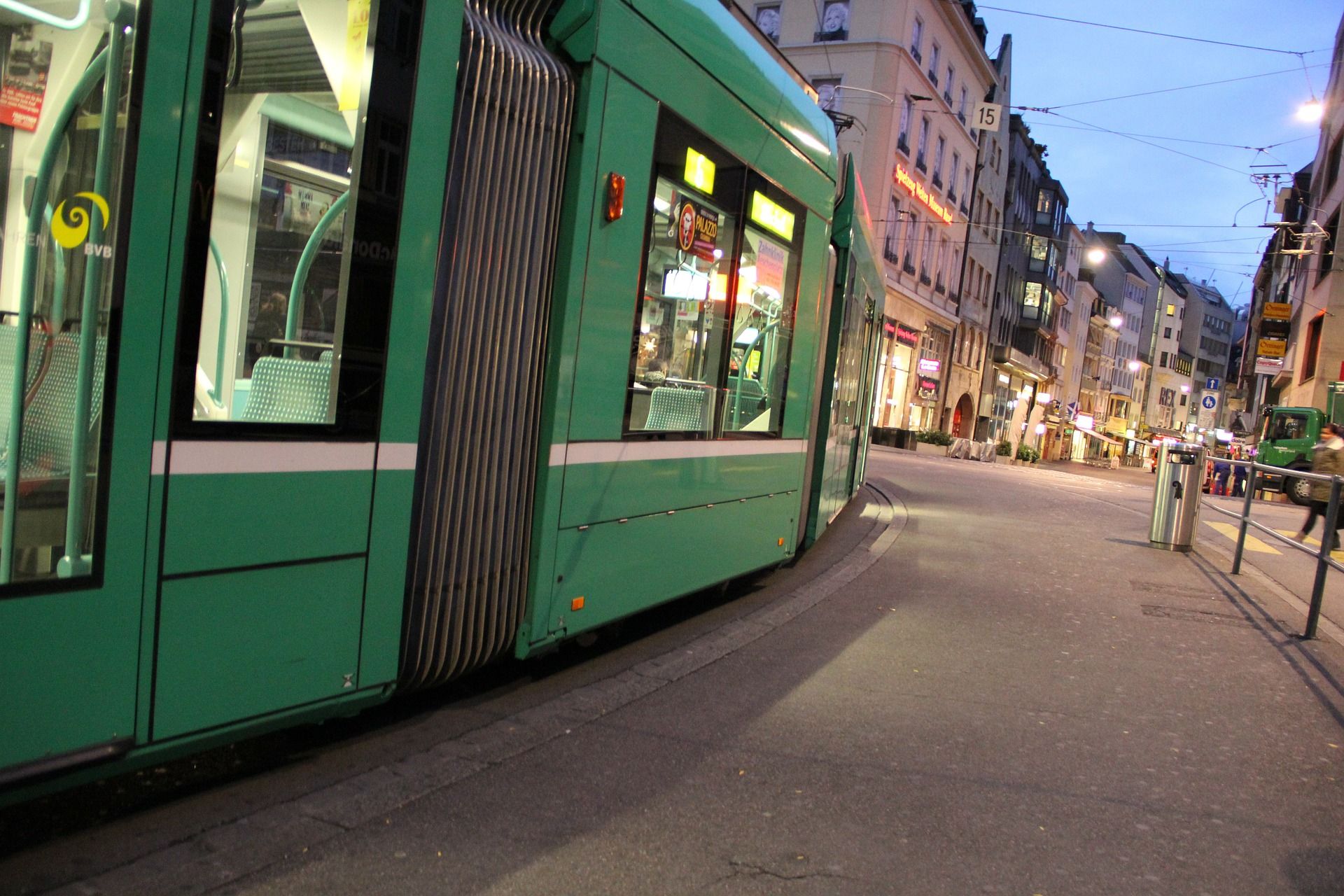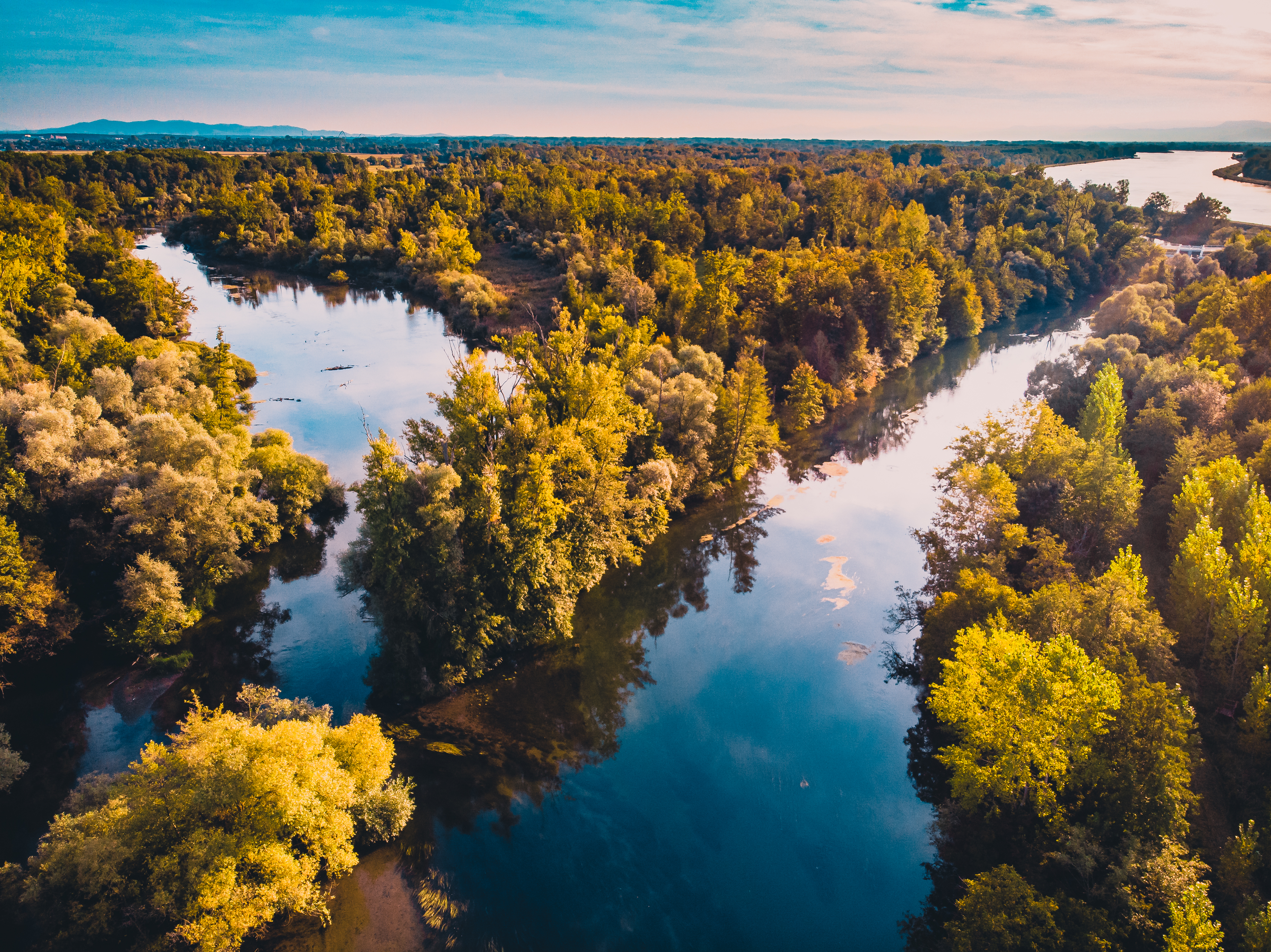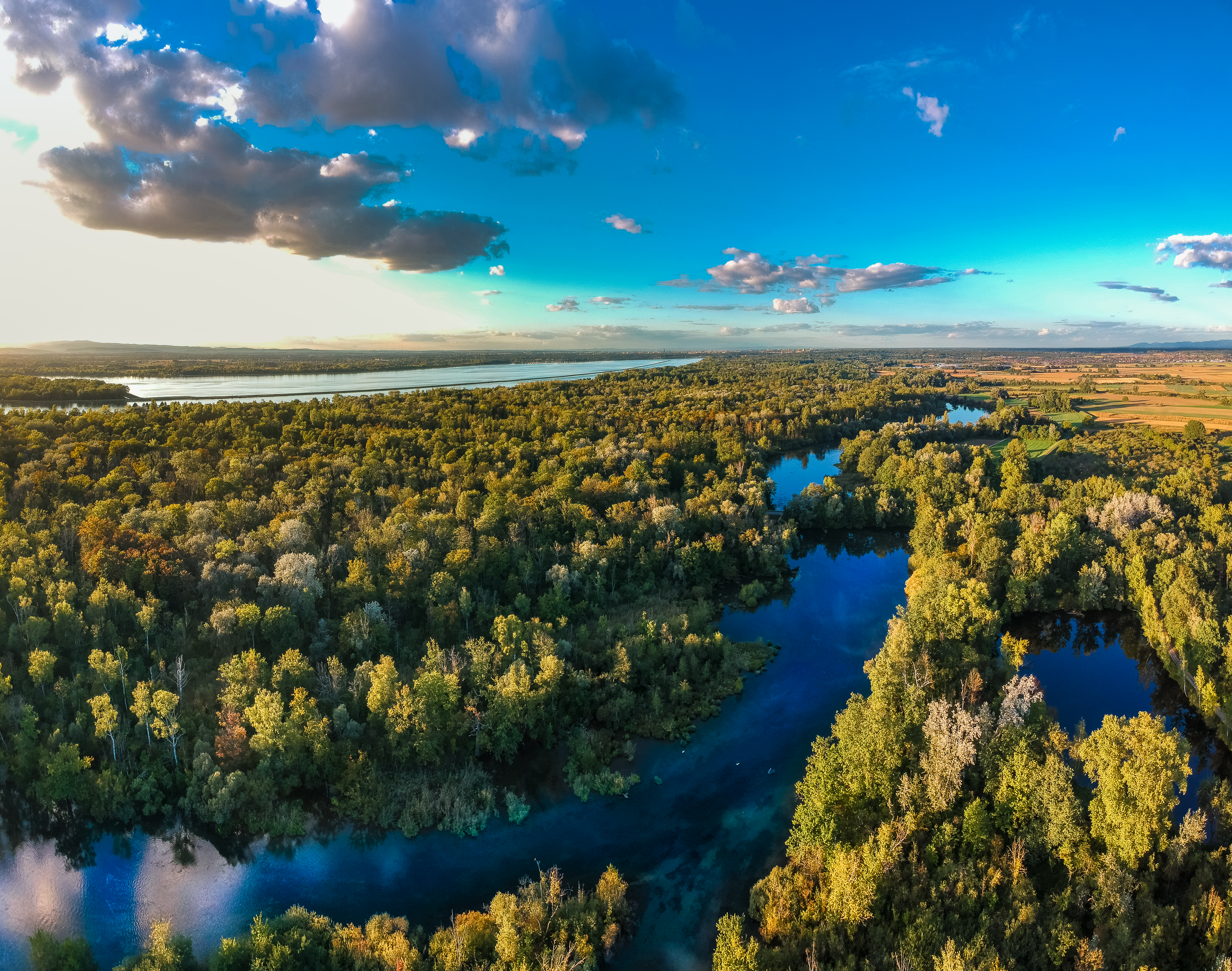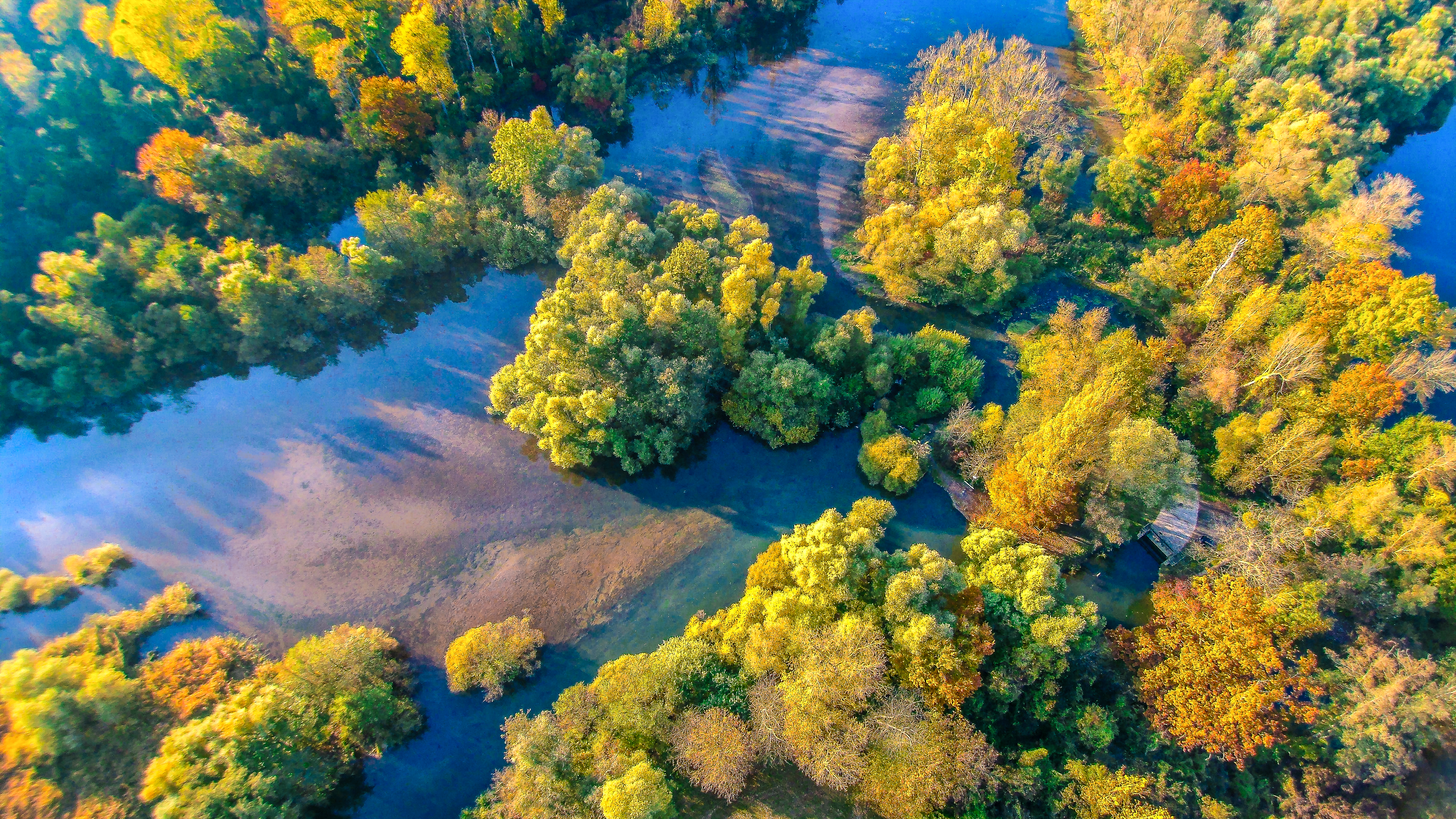The film on the Project - Feasibility Study Innovation Region Fessenheim
The film on the Project - Feasibility Study Innovation Region Fessenheim is available on youtube. Find it here !
Final Report for the Feasibility Study Innovation Region Fessenheim

The members of the Upper Rhine Cluster for Sustainability Research are happy to share the final report on Feasibility Study for the Fessenheim Innovation Region.
Visit to the Upper Rhine by Mr Markus Kerber, State Secretary at the Federal Ministry of the Interior
Source: Préfet du Haut-Rhin
The Secretary of State of the German Federal Ministry of the Interior, Mr Markus Kerber, visited the Upper Rhine on Friday 1 October to learn about the progress of the Fessenheim Territory Project.
Signed in February 2019, the Franco-German Fessenheim Territory Project is one of the 15 projects annexed to the Treaty of Aachen. It aims to create jobs and added value as part of the economic conversion of the area, to improve the area's transport links and mobility, and to make it a model for the transition to a new energy era as well as innovation in the industry and energies of the future.
The Secretary of State was able to visit several sites at the heart of the Territory Project, in particular the Rhine Island and the EcoRhena park, and to meet the elected representatives concerned, in particular Mr Gérard Hug, President of the CCPRB and Mayor of Biesheim, and the Mayor of Breisach-am-Rhein.
Mr Kerber met with Louis Laugier, Prefect of the Haut Rhin, and the experts working on the various aspects of the project, particularly on its industrial dimension. He was able to hear the thoughts of the EUCOR university grouping on technological innovation and new energy sources. In the framework of his visit, he also met Prof. Barbara Koch, the Director of the URCforSR and the scientific lead of the feasibility study for an innovation region Fessenheim, a project led by EUCOR and URCforSR.
On this occasion, the French and German parties reaffirmed their desire to cooperate closely to attract investors who will boost the economic dynamism of this territory, based on a strong industrial base, in accordance with the guidelines for Franco-German economic cooperation set out in the Treaty of Aachen.
A large number of funds are being mobilised by all the partners in this ambition for the territory.
Both parties also stressed the importance of the Colmar-Freiburg rail connection and the connection with the Euro-airport for the economic development of the area, whose future lies within the wider framework of the Colmar-Mulhouse-Freiburg triangle.
800,000 euros for a feasibility study on the development of an innovation region around Fessenheim

© Markus Breig / KIT
How can the Fessenheim area become an innovation region after the closure of the nuclear power plant? Eucor – The European Campus and the “Upper Rhine Cluster for Sustainability Research” (URCforSR) will develop a feasibility study with concrete investment options by the end of 2021. A corresponding financing agreement for the study, which is endowed with 800,000 euros, was signed on January 11, 2021 by the French state, the Région Grand Est, the Federal Republic of Germany, represented by the Federal Ministry of the Interior, Building and Community along with the Ministry of Science, Research and Arts of Baden-Württemberg. The study is fully in line with the memorandum of understanding on the Fessenheim area project signed on February 1, 2019 by the French and German partners, which aims, among other things, to develop the Fessenheim area into an innovation model for business and the energy revolution.
“The feasibility study promotes the development of holistic ideas. We want to develop the Fessenheim site as well as the surrounding Upper Rhine region into a CO2-neutral economic region,” says Prof. Dr. Barbara Koch, head of the Upper Rhine Cluster for Sustainability Research (URCforSR) and Chair of Remote Sensing and Landscape Information Systems at the University of Freiburg.
“The future of the Fessenheim area lies in cross-border cooperation,” emphasizes Prof. Dr. Alain Dieterlen, Vice-President of Valorization at the Université de Haute-Alsace and Vice-President of Eucor – The European Campus. “I am pleased that we are receiving equal financial support from France and Germany for our study. Our common goal is to make the area near the Upper Rhine attractive for companies with a sustainable perspective for innovation and employment.”
The participating scientists from the Universities of Freiburg, Haute-Alsace and Strasbourg as well as the Karlsruhe Institute of Technology (KIT) and the Fraunhofer Institute for Solar Energy Systems ISE are working closely with German and French industrial partners for the study. “This is a major advantage of the study. The intensive cooperation between business and science increases the chances of developing concrete investment opportunities for the Fessenheim area and increasing the competitiveness of the region as a whole,” says Prof. Dr. Thomas Hirth, Vice-President for Innovation and International Affairs at KIT and Vice-President of Eucor – The European Campus.
Four Franco-German competence groups are working together on the feasibility study. The three competence groups on green batteries and battery recycling (circular economy), intelligent power grids (so-called smart grids) and hydrogen are developing concrete pilot projects that will be located in the Fessenheim area in the future. A fourth group is looking at the social, legal and environmental challenges associated with these pilot projects. On this basis, Eucor – The European Campus and URCforSR are developing a roadmap for the implementation and financing of the pilot projects.
In the Treaty on Franco-German Cooperation and Integration, the so-called Treaty of Aachen, Germany and France agreed on the joint further development of the area around the Fessenheim nuclear power plant on the Franco-German border after its decommissioning in June 2020. They aim to develop joint projects in the field of cross-border mobility, energy revolution and innovation within the framework of a Franco-German economic and innovation park.
State Secretary Baumann visits Eucor – The European Campus and the URCforSR

On 25th August 2020, Baden-Württemberg State Secretary Dr. Andre Baumann visited the University of Freiburg as part of his summer tour and informed himself about the development of the Upper Rhine university consortium Eucor – The European Campus. The tour focused on the French concept by the state of Baden-Württemberg adopted on the French national holiday Bastille Day (July 14, 2020) and the further development of the university consortium. On the other hand, Dr. Andre Baumann learned more about cross-border projects developed within the Upper Rhine Cluster for Sustainability Research (URCforSR) in the framework of Eucor.
The project RES-TMO: “Regional concepts for an integrated, efficient and sustainable energy supply and storage in the Upper Rhine Trinational Metropolitan Region” aims to enable a reliable energy supply in the Upper Rhine region with increasing energy generation from renewable energy sources (RES). To this end, the project partners are investigating synergies arising from complementary generation, demand and storage capacities on both sides of the Rhine in order to develop recommendations for decision-makers.
The second project that was presented, SMI: “Smart Meter Inclusif”, combines artificial intelligence and microsocial analysis. The researchers are developing new intelligent electricity meters, so-called smart meters, which are more efficient, secure and better accepted by consumers. Users of the tool, whose prototype was presented to State Secretary Baumann, will be able to collect and predict the consumption of their electrical appliances.
Finally, the participants of the event discussed the concept of Eucor – The European Campus for a post-Fessenheim perspective.
Dr. Andre Baumann has been the representative of the State of Baden-Württemberg to the Federal Government and State Secretary at the Ministry of State in Stuttgart since February 2020.
On the picture from left to right: Prof. Dr. Hans-Jochen Schiewer, Prof. Dr. Thomas Hirth, Dr. Andre Baumann, Prof. Dr. Barbara Koch, Prof. Dr. Frederik Wenz, Prof. Dr. Alain Dieterlen.
EU Jean Monnet Chair “Governance of Integrated Urban Sustainability in Europe (GoInUSE)” granted to Prof. Philippe Hamman, member of URCforSR Board of Directors

Governance of Integrated Urban Sustainability in Europe (GoInUSE): Scales, Actors and Citizenship
Philippe Hamman
Professor of Sociology
Institute of Urbanism and Regional Development, Faculty of Social Sciences
Research Unit Societies, Actors, Government in Europe (SAGE)
University of Strasbourg
For three years (2020-2023), the EU Jean Monnet Chair “Governance of Integrated Urban Sustainability in Europe (GoInUSE)” strives for studying further integrated sustainable development in urban spaces in Europe, and develops innovative approaches, tackled from a social science perspective. In line with the Leipzig Charter and the Pact of Amsterdam, it promotes one of the European Union’s priorities as set out in its Cohesion Policy (European Regional Development Fund), the European Urban Initiative as well as the ‘Green Deal’. By mobilizing sociological approaches, it aims both at reflecting on the issues and at suggesting possibilities for action. Strasbourg is a very favourable setting for this, thanks to the interactions between the Institute of Urbanism and Regional Planning of the Faculty of Social Sciences and the research unit SAGE (Societies, Actors, Government in Europe) and to the partnerships established within the Interdisciplinary Thematic Institute Making European Society.
In the course of the three years, the activities include four complementary aspects: 1/ Bachelor’s degree and Master’s degree modules (including distance-learning) are complemented by 2/ a seminar “Governance of Integrated Sustainability in Europe: Scales, Actors and Citizenship”, which favours interactions between students, scholars and professionals; 3/ the organization of conferences and open debates; and 4/ support for research (including young researchers).
More specifically, we will question the following three related issues: Sustainable and shared urban mobilities in Europe; Cities and energies in Europe; Just city and popular ecology in Europe.
In connection with the teaching and seminars, the deliverables include events (conferences and debates organized every year) and publications: open access articles, a collective work (translated into English) and a special academic journal issue. Communication for the project is ensured through an Internet website.
Impacts are expected on a European level (implementation of the EU Urban Agenda and Green Deal, position of the EU regarding global sustainability, promotion of active eco-citizenship), on a national level (increased connections between sociology and urban studies and European studies, greater awareness of the social dimensions of cities from technical and legal professions – urban planners, architects, managers, etc.), and for the University of Strasbourg (excellence teaching and integration of European studies components in the Faculty of Social Sciences, including professional bachelor’s programmes, master’s programmes and distance learning).
The influence of the coronavirus on the cross-border collaboration within the SuMo-Rhine project

Contact ban, curfew and boarder closures are changing the way we collaborate and influencing the cross-border mobility. As part of the interview series of EUCOR – The European Campus the project leader Dr. Kira Schumacher discusses the influence of the current situation on the SuMo-Rhine project. To read the whole interview click here.
New Book Publication of the Cluster
The newly published collective book "Sustainability Research in the Upper Rhine Region. Concepts and Case Studies", edited by Philippe Hamman (deputy director of the cluster) and Stéphane Vuilleumier, is now available.
The book showcases recent work of scientists who participated in the International Conference on Sustainability in Strasbourg in September 2018. The authors examine a variety of theoretical and cognitive dimensions of sustainability as well as relevant methods of analysis. They also present concrete and reflective studies at the level of the Upper Rhine Region. Collectively, these diverse contributions offer a vivid and global overview of this highly topical field.
For further information or to order a copy, please click here.
Book publication of the Cluster
The Cluster is pleased to announce its first book publication (Routledge), entitled: “Sustainability Governance and Hierarchy”. The book analyses the concept of “sustainability governance” through sustainability and environmental studies, as well as through the methodological aspects from social sciences. It was edited by Philippe Hamman (Deputy Cluster Head) and was published on June 25, 2019. For further information or to order a copy please click here.
EU funds Interreg projects
The European Union is funding eight new large-scale projects in the Upper Rhine region with a total of € 6.1 million from the European Regional Development Fund (ERDF). These include the two Interreg projects Navebgo and RES_TMO, which are presented below:
Protection against pollution
The project "NAVEBGO" wants to sustainably reduce the pollution of groundwater by biocides in the Upper Rhine. Biocides are often used on building facades to protect against algae and fungal attack, then enter the urban water cycle and finally into the groundwater. In a first step, the project partners in the cities of Freiburg, Strasbourg and Landau want to determine and record the content of biocides in groundwater. Terrain experiments should make it possible to better understand how exactly the pollutants reach the groundwater. The practices of the various actors using biocides in façade coatings are also to be analyzed in order to offer the actors concerned alternatives to the previous use of biocides.
Promoter: University of Freiburg
European funding: € 1.12 million
Increase in renewable energies
The switch to renewable energies is a major challenge worldwide and on the Upper Rhine. In this context, questions that concern the continuous supply of energy and the flexibility of the supply systems come to the fore. The solution to this problem lies in the complementary use of energy systems and the improvement of storage capacities. The partners of the project "RES_TMO" now want to develop an energy concept for the Upper Rhine region in which cross-border potentials can be efficiently exploited. This concept is intended to serve politicians in particular as a decision-making aid and recommendation for action.
Promoter: University of Freiburg
European funding: € 1.41 million
Text source: www.interreg-oberrhein.eu/actualites/61-millionen-euro-an-europaeischen-foerdergeldern-fuer-die-grenzuebergreifende-oberrheinregion/
Interesting presentations at the annual meeting of the URCforSR
The annual meeting of the URCforSR was held on 29 September 2017 at the University of Freiburg. It focused on the reflection and presentation of the working group development in the five different axes of the cluster. About 60 participants came to Freiburg and had the chance to listen to a diverse number of input speeches and working group presentations as well as to learn from the posters prepared by the cluster's enablers.
International Sustainability Conference 2018 / call for abstracts
The call for abstracts for the International Sustainability Conference of the URCforSR which will take place from 27 to 28 September 2018 in Strasbourg is opening on 15 September 2017.
Call for projects Seed Money 2017
- the text below is only available in German and French -
Der Europäische Verbund für Territoriale Zusammenarbeit (EVTZ) Eucor- The European Campus hat Anfang
Juli 2017 das Förderinstrument "Seed Money" eingerichtet, das darauf abzielt, innovativen grenzüberschreitenden Projekten in Forschung und Lehre innerhalb von Eucor – The European Campus eine Anschubfinanzierung zu gewähren. Um diese Unterstützung zu erhalten, ist eine aktive Projektmitarbeit von Angehörigen mindestens zweier Mitgliedsuniversitäten von Eucor – The European Campus aus mindestens zwei Ländern erforderlich. Darüber hinaus darf vorher keine andere nationale oder internationale Förderung an dieses Projekt vergeben worden sein.
Weitere Informationen finden Sie auf den Ausschreibungstexten und Merkblättern, die Sie mittels folgendem Link herunterladen können: http://www.eucor-uni.org/de/2017/06/22/seed-money
Anträge müssen über das Online-Formular eingereicht werden, das auf der Webseite von Eucor – The European Campus (www.eucor-uni.org) verfügbar ist. Die Einreichungsfrist läuft bis Montag, 2. Oktober 2017, 14.00 Uhr.
Die Finanzierung der bewilligten Projekte startet frühestens am 1. Januar 2018 und dauert maximal 18 Monate.
German-French Scholarship program
BMBF: Franco-German Fellowship Programme on Climate, Energy and Earth System Research under the French Initiative "Make our Planet great again"
The Paris Agreement on Climate Change poses unique challenges for science as the parties recognized ''the need for an effective and progressive response to the urgent threat of climate change on the basis of the best available scientific knowledge''. Germany and France are jointly supporting the implementation of the Paris Agreement. Both countries are leading the way with their coordinated fellowship programme to promote research in the areas of climate, energy and the Earth system. Under the French initiative "Make our planet great again", Germany and France are inviting researchers from all over the world to cooperate with German and French partners in advancing research in the following fields of sustainability science: Research on climate change, science for the energy transition, research to understand the Earth system. The program also aims to network researchers. Germany and France will organize joint networking activities for the laureates in order to encourage networking between the laureates and with other international researchers in their discipline.
The French call has already been published. For more information about the French program part see:
www.makeourplanetgreatagain.fr.
The German announcement of funding regulations will be published soon. If you would like to be notified as soon as you can apply for the program: www.fona.de/climate-fellows.
Forum "Economy and sustainable development in the Upper Rhine Region"
The Forum "Economy and sustainable development in the Upper Rhine Region" will take place on
21 September 2017 in Strasbourg.
Research programme for master and post master students
Some information about a research programme for master and post master students:
www.nplusi.com/articles/362/FIER_DOC_French_Innovative_Experience_in_Research
Official URCforSR Opening Event
The invitation to the official opening event of the Upper Rhine Cluster for Sustainability Research which took place on 22 November 2016 at the University of Freiburg, has been accepted by 130 guests from sciences, politics, economy and society as well as by the representatives of the six associated institutions. All together could enjoy a ceremonious and interesting afternoon.
Successful URCforSR Kick-Off Event
On October 7 and 8, 2016 the members of the Upper Rhine Cluster for Sustainability Research
met in Freiburg for a kick-off meeting and discussed in group meetings the different axes of the project
(governance; energy, infrastructure & social change; transformation processes & technologies;
resource management; multiculturalism & multilingualism).
Altogether, there were almost 80 researchers from the Upper Rhine region, who aim to strengthen
their collaboration in 15 thematic working groups in the future.






